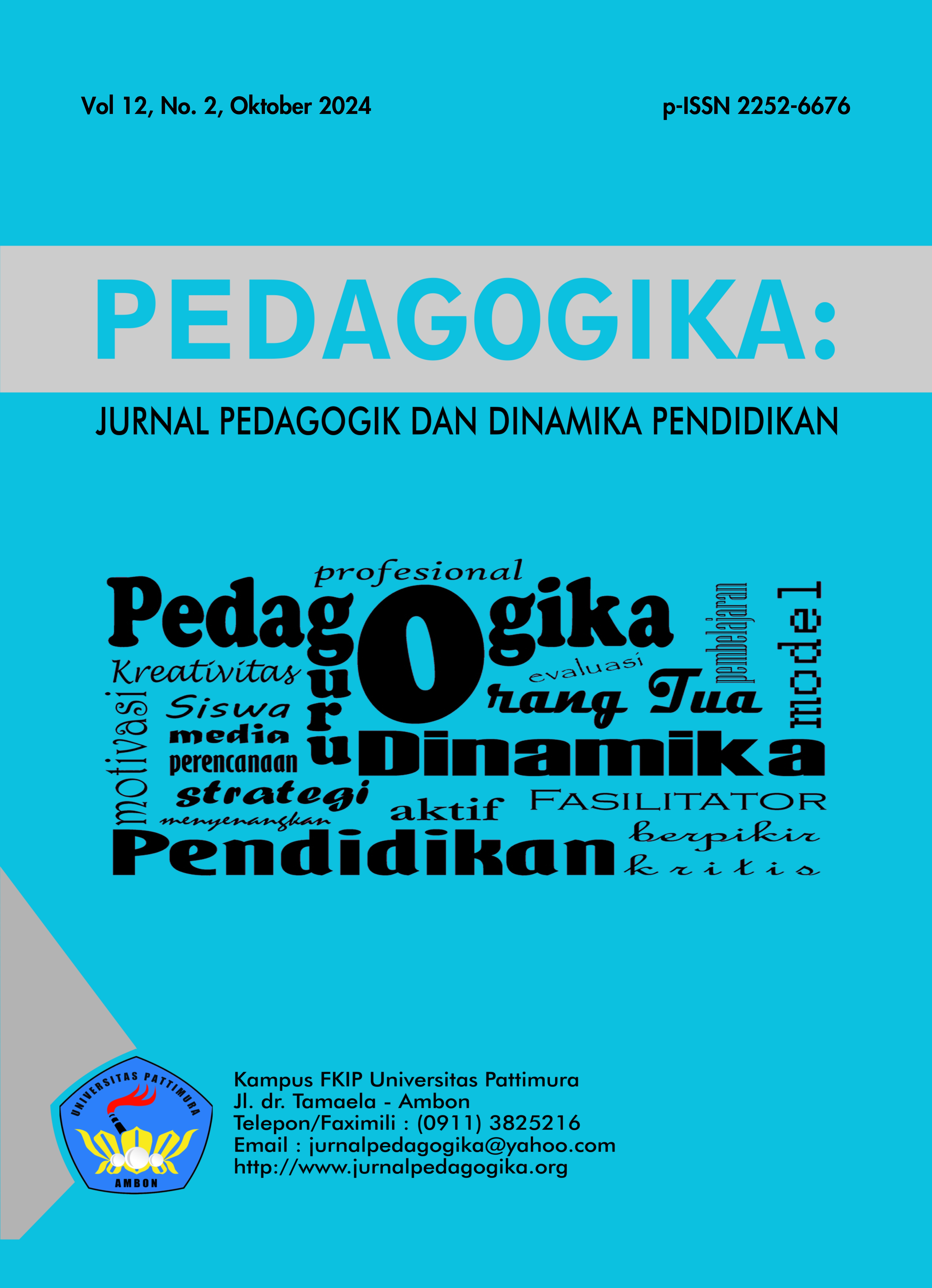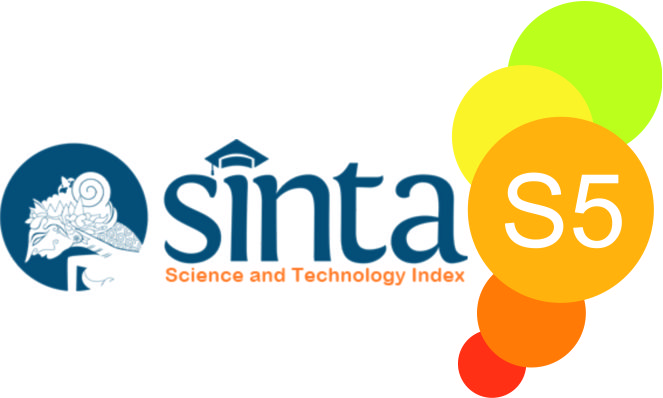ELEMENTARY SCHOOL STUDENTS’ CREATIVE MATHEMATICAL THINGKING ABILITY THROUGH THE COLLABORATIVE PROBLEM-SOLVING MODEL
Abstract
This research aims to analyze the influence of the Collaborative Problem Solving (CPS) model on mathematical creative thinking abilities (MCTA). The approach used is quasi-experimental with a one-group pretest-posttest design and tested using a paired sample t-test. The research involved 21 fifth-grade students at state elementary school 1 Tual, Maluku Province, Indonesia. The research results show that the CPS model influences MCTA capabilities. By analyzing N-gain, it is found that all KBKM indicators have increased. The fluency indicator increased by 11%, flexibility achieved an increase of 14%, and originality increased by 2%, where all three indicators increased in the low category. This increase is due to the effective use of the CPS learning model. The CPS model triggers students to collaborate in a structured manner, interact, and work together to construct mathematical ideas. In collaborating, students are also encouraged to find various creative ideas for solving mathematical problems.
Downloads
Copyright (c) 2024 PEDAGOGIKA: Jurnal Pedagogik dan Dinamika Pendidikan

This work is licensed under a Creative Commons Attribution-NonCommercial-ShareAlike 4.0 International License.









 This work is licensed under
This work is licensed under 